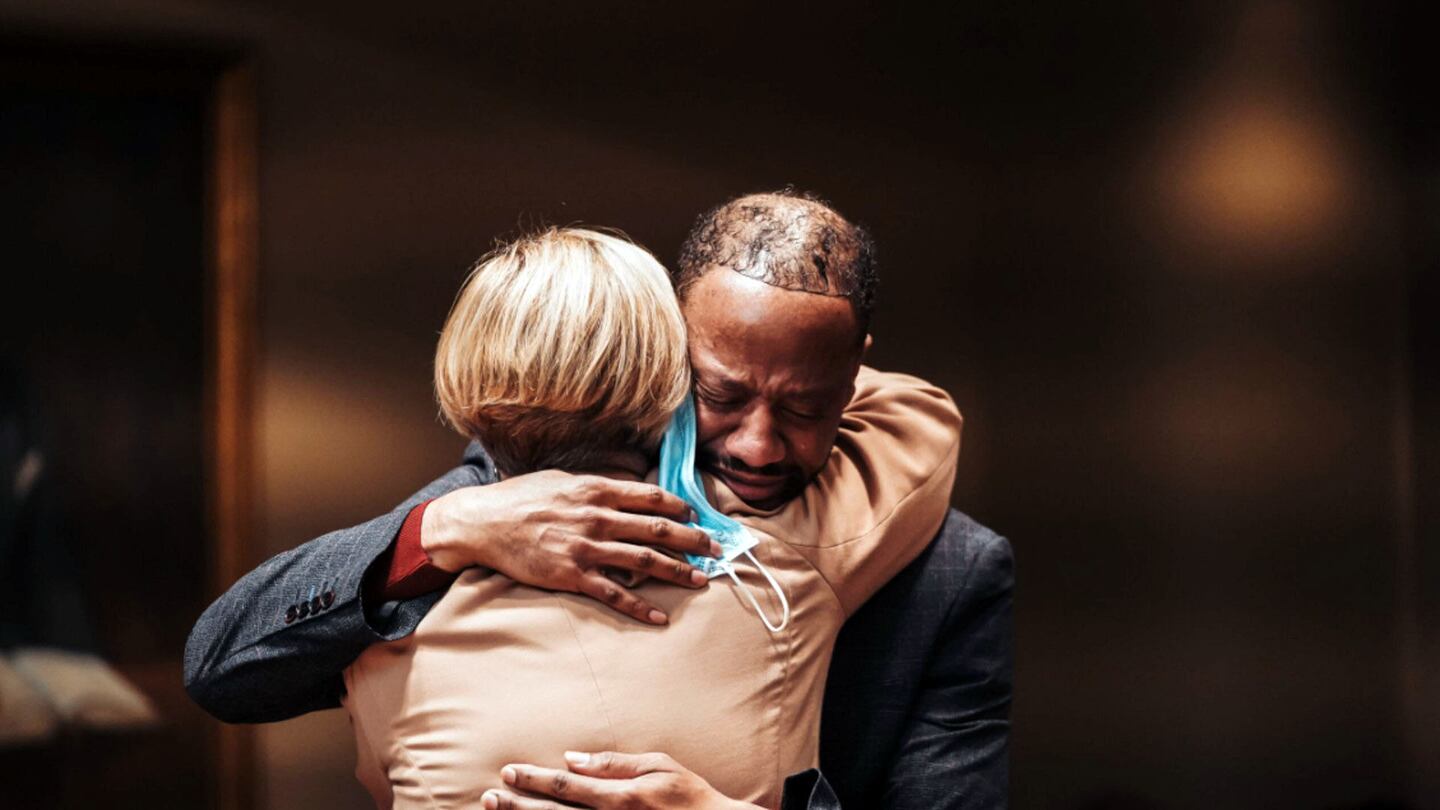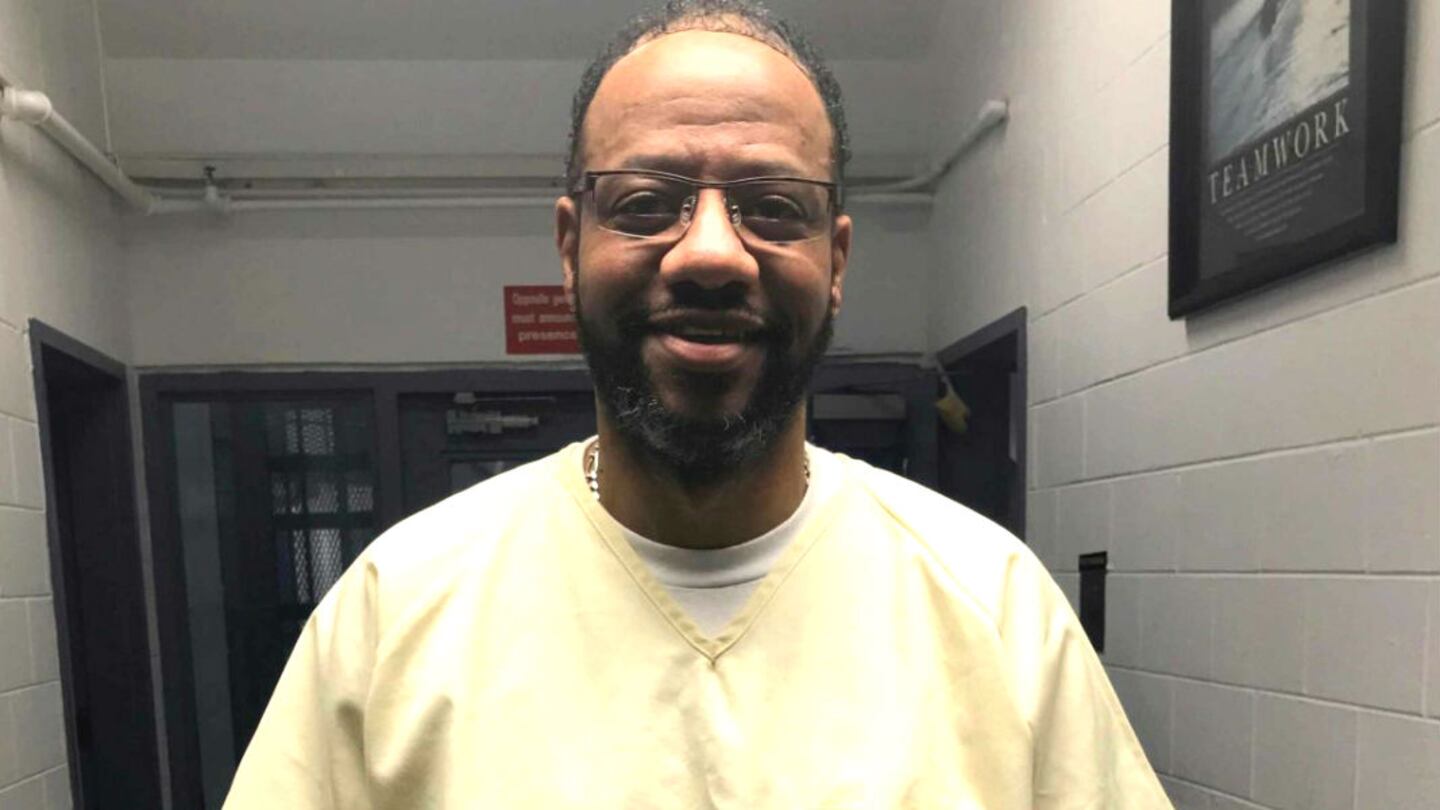MEMPHIS, Tenn. — A condemned Tennessee inmate, who has for decades proclaimed his innocence in a brutal 1987 double murder, has been freed from death row.
Pervis Payne, 54, will remain in prison for the murders of Charisse Christopher, 28, and her 2-year-old daughter, Lacie Jo, who were stabbed to death June 27, 1987, in their home in the Memphis suburb of Millington. Christopher’s 3-year-old son, Nicholas, was also stabbed but survived.
Payne’s attorneys argued that their client is intellectually disabled and, therefore, is ineligible for the death penalty under a relatively new Tennessee law. A judge on Tuesday vacated Payne’s two death sentences based on those claims.
Payne wept in court Tuesday as he hugged his attorney, Kelley Henry, according to The Associated Press.
“He just hugged me and just said, ‘Thank you,’ over and over and over again,” Henry told reporters following the hearing. “I told him it was all right, ‘I got you.’”
Shelby County District Attorney Amy Weirich announced Friday that prosecutors would no longer pursue plans to execute Payne because the state’s own expert “could not say that Payne’s intellectual functioning is outside the range for intellectual disability.”
“We received this information last week, thoroughly reviewed the findings, and we met with the victims’ family this week to explain the current reality with which we are now faced,” Weirich said in a statement. “The family was not happy, but they understand.
“We can’t change the facts and we can’t change the law.”
Payne’s family said they have a lot to be thankful for this Thanksgiving.
“This will always be a monumental week from now on, because that’s how I feel today,” Payne’s sister, Rolanda Holman, said in a statement. “Although he is not able to come to the table and have Thanksgiving with us, it gives me such a drive and reignites my fire even more to work toward that day when he will be able to sit at the table with our family and have a good slice of turkey. It’s amazing, so amazing.”
The U.S. Supreme Court banned execution of the mentally disabled in 2002, but Tennessee’s law was not retroactive. The state had no way for an inmate to reopen his case and argue an intellectual disability claim.
A new law signed by Gov. Bill Lee over the summer changed that.
“The law was critical, because for nearly a decade, the state has hid behind procedural obstacles, and the legislature wiped those obstacles away,” Henry said, according to the AP.
Payne was initially scheduled to die last December but was granted a rare temporary reprieve due to the COVID-19 pandemic. That reprieve ended in April, but the Tennessee Supreme Court had not yet rescheduled his execution.
Prosecutors are seeking to have Payne’s life sentences set consecutively, which would eliminate his ability to seek parole before the age of 85. He would effectively serve life without parole.
“This would be grossly unfair to Mr. Payne, who is innocent and should never have been subjected to the death penalty,” Henry said.
If the judge hands down concurrent sentences, which are served at the same time, Payne would be eligible for parole much sooner.
The state and the defense will argue that portion of the case Dec. 13, the AP reported.
Henry said she will continue trying to find evidence that exonerates Payne, who told authorities that he went to Christopher’s apartment building the day of the murders to visit his girlfriend, who lived across the hall from Christopher and her children. Payne, then 20 years old, said he heard moans coming from Christopher’s apartment and found her and her children wounded inside.
At the same time, a neighbor who lived in the unit below Christopher’s had already called police because she had heard loud noises and a “bloodcurdling scream” coming from the apartment above, according to court records.
The first police officer on the scene encountered a bloody Payne, who authorities said was so covered with blood that he appeared to be “sweating blood.” When the officer asked what was going on, Payne struck him with his overnight bag, dropped a pair of tennis shoes and ran.
Payne later told authorities he panicked when he saw the officer because he feared he’d be blamed for the murders. He said his clothes were bloodied when he tried to help the victims.
“[Pervis] had never been arrested before the day of this tragic event and has never received a single disciplinary write-up in prison. He has a loving family and strong community support who would welcome him home,” said @kelleyjhenry. https://t.co/5Zd8tZPRpr pic.twitter.com/Aufwni8kIx
— The Innocence Project (@innocence) November 23, 2021
Officers found a “horrifying scene” inside Christopher’s apartment, the court documents say. Christopher and her children were lying on the kitchen floor, and blood covered the walls and floor throughout the home. Nicholas had been stabbed 12 times.
“Nicholas, despite several wounds inflicted by a butcher knife that completely penetrated through his body from front to back, was still breathing,” the records state. “Miraculously, he survived, but not until after undergoing seven hours of surgery and a transfusion of 1700 cc’s of blood — 400 to 500 cc’s more than his estimated normal blood volume. Charisse and Lacie were dead.”
Christopher had suffered 42 direct stab wounds and another 42 defensive wounds on her arms and hands, according to authorities. None of the wounds were individually fatal, and her death was determined to have occurred from blood loss.
Lacie had suffered nine stab wounds to the chest, abdomen, back and head. A butcher knife was found at her feet.
“Payne’s baseball cap was snapped on her arm near her elbow. Three cans of malt liquor bearing Payne’s fingerprints were found on a table near her body, and a fourth empty one was on the landing outside the apartment door,” court documents state.
Payne was arrested later that day at his ex-girlfriend’s house, where he was found hiding in the attic.
He later told detectives that as he arrived at the apartment building that afternoon, he encountered a man who jumped from the second-floor landing and ran past him. The defense has argued that the man Payne saw could have been the true killer.
>> Read more true crime stories
Along with the argument that Payne is intellectually disabled, his defense team had sought to have evidence in the case tested for DNA. A judge granted that bid last fall, but the testing did not exonerate Payne of the crime.
According to the AP, the testing determined that Payne’s DNA was on the knife, along with a partial DNA profile from an unknown man.
There was not enough of the unknown man’s DNA, however, for his profile to be entered into CODIS, the FBI’s national DNA database. The report indicated that the unknown man’s genetic material was found on the handle of the knife.
Payne’s blood was found on the hilt of the knife. The location aligns with Payne’s trial testimony that he cut his hand while trying to help Christopher, who was trying to pull the knife from where it was lodged in her throat.
Prosecutors argued in January that the test results do not exonerate Payne, and the judge agreed.
Henry and her colleagues with the Innocence Project, which has been working on Payne’s case, disagreed, according to the AP.
“The DNA testing results are consistent with Pervis Payne’s long-standing claim of innocence,” the nonprofit said in a statement at the time.
©2021 Cox Media Group



